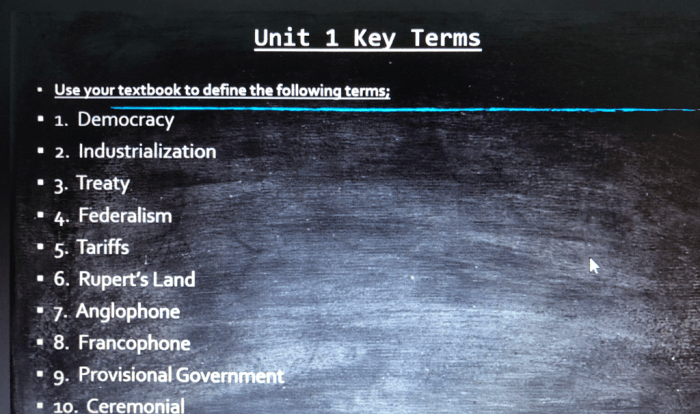Tamir starts earning better grades, embarking on a journey of academic transformation. This engaging narrative explores the multifaceted factors that contribute to improved grades, providing a roadmap for students to unlock their full potential.
Through a blend of effective study habits, enhanced motivation, and supportive learning environments, Tamir’s journey serves as an inspiration, demonstrating the power of determination and the impact of evidence-based educational practices.
Improved Study Habits
Establishing effective study habits is crucial for academic success. Students who implement consistent and organized study routines tend to perform better in their coursework and achieve higher grades. By adopting efficient study techniques, managing time effectively, and maintaining a structured approach, individuals can significantly enhance their study habits and improve their academic performance.
Time Management and Organization
Effective time management involves allocating specific time slots for studying, completing assignments, and reviewing material. Creating a study schedule and sticking to it helps students stay organized and avoid procrastination. Additionally, setting aside regular study sessions allows for consistent engagement with the subject matter, promoting better retention and understanding.
- Prioritize Tasks:Determine the most important tasks and allocate more time to them.
- Break Down Assignments:Divide large assignments into smaller, manageable chunks to make them less daunting.
- Minimize Distractions:Create a dedicated study space free from distractions like social media or television.
Effective Study Techniques, Tamir starts earning better grades
Adopting effective study techniques enhances comprehension and retention of information. Active recall, spaced repetition, and elaborative encoding are proven methods that improve memory and understanding.
- Active Recall:Regularly testing oneself on the material forces the brain to retrieve information, strengthening memory.
- Spaced Repetition:Reviewing material at increasing intervals helps solidify it in long-term memory.
- Elaborative Encoding:Connecting new information to existing knowledge and personal experiences makes it more meaningful and easier to remember.
Consistency and Review
Consistency and regular review are essential for maintaining strong study habits. Revisiting material at regular intervals helps prevent forgetting and reinforces understanding. Additionally, consistent study sessions allow for gradual absorption of information, promoting better comprehension and retention.
- Regular Review:Schedule regular review sessions to revisit previously covered material.
- Seek Clarification:If any concepts are unclear, seek clarification from teachers, peers, or online resources.
- Active Engagement:Engage with the material through discussions, problem-solving, or creating summaries.
Enhanced Motivation and Engagement
Motivation plays a crucial role in academic performance, influencing students’ willingness to learn, engage with the material, and persevere in the face of challenges. When students are motivated, they are more likely to set higher goals, exert greater effort, and achieve better outcomes.
Strategies to Increase Student Motivation and Engagement
- Foster a positive learning environment:Create a classroom atmosphere that is welcoming, respectful, and conducive to learning. Establish clear expectations, provide constructive feedback, and recognize students’ accomplishments.
- Make learning relevant and meaningful:Connect course content to real-life situations and students’ interests. Use hands-on activities, simulations, and projects to make learning more engaging.
- Provide choice and autonomy:Give students opportunities to choose topics, projects, or learning activities that interest them. This fosters a sense of ownership and increases motivation.
- Set challenging but achievable goals:Help students set realistic goals that are challenging but not overwhelming. Success in achieving these goals can boost motivation and build confidence.
Role of Teachers and Parents in Fostering Motivation
Teachers and parents play a vital role in fostering a positive and supportive learning environment that promotes student motivation. Teachers can:
- Provide clear and engaging instruction.
- Create a supportive and encouraging classroom atmosphere.
- Set high expectations and provide constructive feedback.
li>Collaborate with parents to support students’ learning at home.
Parents can:
- Encourage their children to set goals and work hard.
- Provide a supportive home environment for learning.
- Attend school events and communicate with teachers to stay informed about their children’s progress.
- Model a love of learning and demonstrate the importance of education.
Effective Teaching Methods
Effective teaching methods are crucial for improving student grades. They create an engaging and supportive learning environment that promotes understanding, retention, and motivation.
Engaging teaching techniques include:
- Interactive lectures with discussions, Q&A sessions, and student participation.
- Hands-on activities, experiments, and simulations that make learning tangible.
- Visual aids such as videos, images, and diagrams that enhance comprehension.
Differentiated and individualized support is also essential. Teachers can:
- Provide extra support to students who need it, such as one-on-one tutoring or small group instruction.
- Offer alternative assignments or modifications to accommodate different learning styles.
- Create a classroom culture that values diversity and encourages all students to participate.
Learning Environment
A conducive learning environment plays a pivotal role in academic success. It encompasses various factors that influence student motivation, engagement, and overall performance.The classroom atmosphere sets the tone for learning. A positive and supportive environment fosters a sense of belonging and encourages students to participate actively.
Teachers who create a respectful and collaborative atmosphere promote open communication and help students feel comfortable asking questions and seeking assistance.Access to resources is essential for effective learning. Libraries, computer labs, and other facilities provide students with the necessary materials and tools to complete assignments and enhance their understanding.
Well-equipped classrooms with comfortable seating, adequate lighting, and proper ventilation contribute to a positive learning experience.Peer support is a valuable asset in any learning environment. Students who collaborate with their peers, engage in group discussions, and share ideas often demonstrate improved comprehension and retention.
A supportive peer network can also provide motivation and encouragement, fostering a sense of community and accountability.By creating a positive and supportive learning environment, educators can enhance student performance, foster a love for learning, and prepare them for success beyond the classroom.
Cognitive Development
Cognitive development is closely linked to academic performance. As students develop cognitively, they acquire skills essential for academic success, such as critical thinking, problem-solving, and memory. Enhanced cognitive abilities enable students to process information more efficiently, comprehend complex concepts, and apply knowledge effectively.
Strategies to Enhance Cognitive Development
Several strategies can be employed to enhance cognitive development and support improved grades:
- Active Learning:Engage students in hands-on activities, simulations, and problem-based learning to promote critical thinking and problem-solving skills.
- Metacognition:Encourage students to reflect on their learning process, identify areas for improvement, and develop self-regulation strategies.
- Memory Techniques:Introduce effective memory techniques, such as spaced repetition, retrieval practice, and elaborative encoding, to enhance information retention.
- Cognitive Games and Exercises:Incorporate cognitive games and exercises into the learning process to stimulate cognitive functions, such as puzzles, logic problems, and memory challenges.
Assessment and Feedback
Regular assessment and feedback are crucial for improving student grades. They provide students with insights into their progress, identify areas for improvement, and motivate them to perform better.
Assessments can be formal (e.g., tests, quizzes, exams) or informal (e.g., class discussions, homework assignments, observations). Formal assessments provide a comprehensive evaluation of student learning, while informal assessments offer ongoing feedback and allow teachers to adjust instruction as needed.
Types of Assessments
- Diagnostic assessments:Determine students’ prior knowledge and identify areas where they need support.
- Formative assessments:Provide ongoing feedback during the learning process to help students identify areas for improvement and make adjustments.
- Summative assessments:Evaluate student learning at the end of a unit or course to measure their overall achievement.
Providing Meaningful Feedback
Feedback should be specific, timely, and actionable. It should focus on both strengths and areas for improvement, and provide clear guidance on how students can progress.
- Use descriptive language:Avoid vague or general feedback. Instead, use specific examples and observations to explain students’ strengths and weaknesses.
- Provide clear suggestions:Offer practical advice on how students can improve their performance. Avoid simply restating the problem.
- Be timely:Feedback is most effective when provided promptly after the assessment. This allows students to make adjustments while the material is still fresh in their minds.
Additional Factors: Tamir Starts Earning Better Grades
In addition to the factors mentioned above, other external influences can contribute to improved academic performance.
These include:
Home Support and Parental Involvement
A supportive home environment with engaged parents can significantly impact a student’s grades. Parental involvement in homework, attendance at school events, and encouragement of extracurricular activities fosters a positive learning atmosphere and instills a value for education.
Peer Influence and Collaboration
Positive peer relationships and collaboration can enhance motivation and engagement. Study groups, peer tutoring, and social support networks provide students with opportunities to share knowledge, learn from others, and develop a sense of belonging within the learning community.
Extracurricular Activities and Hobbies
Participating in extracurricular activities and hobbies can develop skills and interests that complement academic learning. These activities can foster creativity, critical thinking, problem-solving abilities, and time management skills, all of which contribute to improved academic performance.
Health and Well-being
Physical and mental well-being are essential for optimal academic performance. Adequate sleep, a healthy diet, and regular exercise contribute to cognitive function, concentration, and overall well-being. Addressing mental health concerns, such as anxiety or stress, can also improve a student’s ability to focus and learn effectively.
User Queries
How did Tamir improve his study habits?
Tamir implemented a structured study schedule, utilized effective note-taking techniques, and sought support from teachers and peers when needed.
What strategies did Tamir use to enhance his motivation?
Tamir set clear goals, engaged in activities he enjoyed, and surrounded himself with positive and supportive individuals.
How did Tamir create a conducive learning environment?
Tamir established a dedicated study space, minimized distractions, and sought out opportunities for collaboration and peer support.

